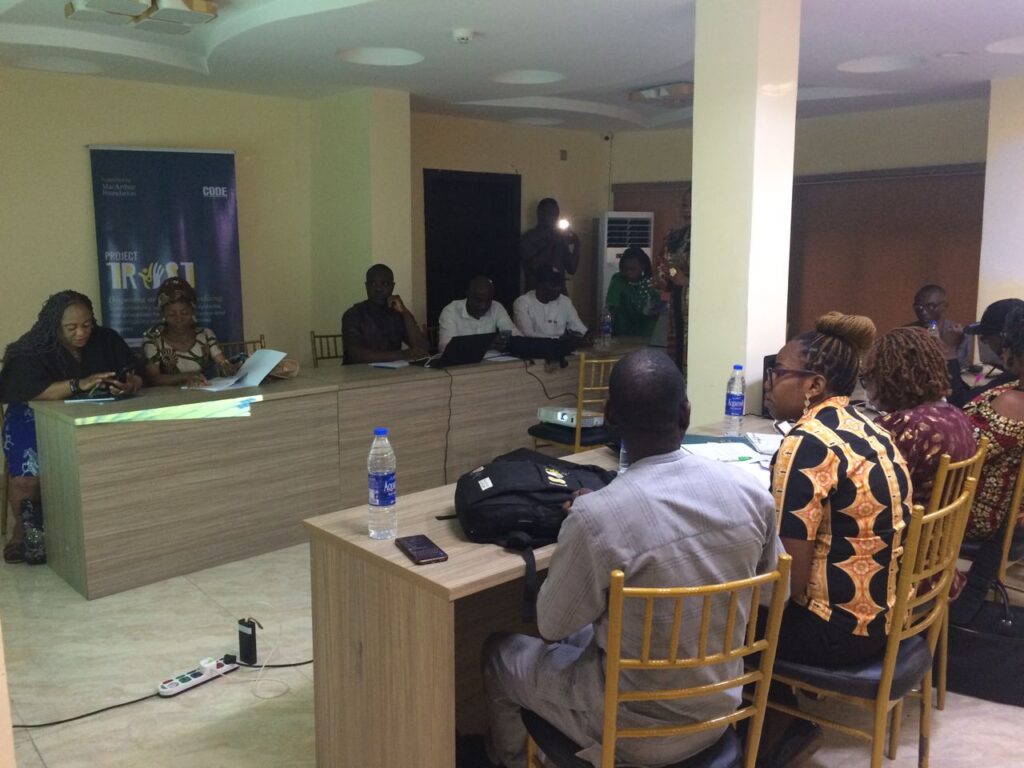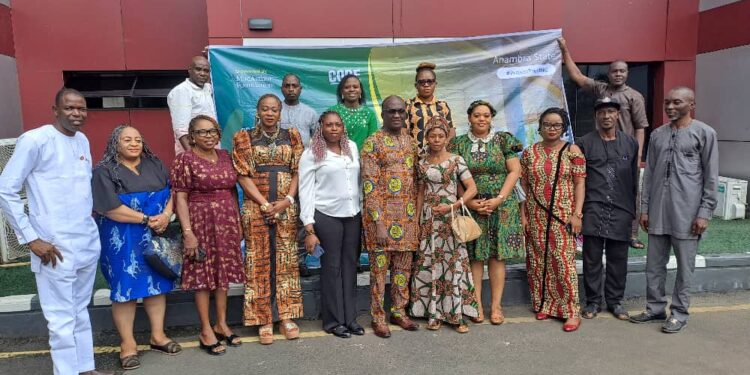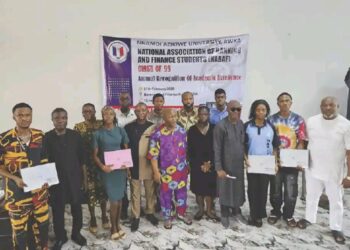Chinedum Treasure
A group, ProjectTrust has urged public servants in Anambra State to work towards restoring citizens confidence in government.
State Support Officer, Ujunwa Ananwude, made the appeal in Awka during a training programme for officials of the state ministries of health, education as well as Power and Water Resources and the agencies under them.
The meeting is part of the implementation of the project by Connected Development, CODE with the support by MacArthur Foundation in the state.

Presenting an overview of the project, Ananwude said that ProjectTrust is targeted at deepening and institutionalizing accountability, social inclusion systems and processes to promote resilience and sustainability in governance across Nigeria.
The project, according to her, is being implemented under the following objectives: strengthening and building resilience for CODE through the setup of a Community of Practice (CoP), legacy building through institutionalizing accountability systems, developed by CODE across the six geopolitical zones in Nigeria.
“Other objectives are rebuilding trust in government through accountability and citizens engagement), as well as facilitating social inclusion systems by demanding accountability for the implementation of the Discrimination Against Persons with Disabilities (Prohibition) Act, 2018”.

“The project is targeted at enhancing service delivery in three critical sectors of health, education and WASH which is Water, Sanitation and Hygiene. Our goal is to help government achieve greater efficiency in those sectors”.
A member of ProjectTrust Community of Practice and Executive Director, Social and Integral Development Centre, (SIDEC), Ugochi Ehiahuruike, speaking on inclusive budgeting, social accountability, and citizen participation, stressed the need for government budgets to always reflect the needs of various communities as contained in their Charters Of Demand, (CCDs).
“CCD is a document developed with inputs from all community groups and presented to State government to be included in the State budget with the goal of better and more inclusive service delivery. CCD ensures that budget development is community-driven, responsive & effective in addressing community needs and priorities”.
According to her, “Inclusive budgeting involves citizens in decision-making to ensure that public resources benefit all segments of society. It helps to ensure public resources are allocated effectively to improve citizens’ lives.
“Inclusive budgeting must be clear and accessible to the citizens. It must foster citizens’ involvement and must ensure that government is accountable for budget implementation. The benefits include: improved resource allocation, enhanced citizen engagement and increased trust in government.
In another presentation, Chizoba Nwabachili, a State Health Management Information System Officer, explained the role of effective monitoring and evaluation in ensuring success of programmes and activities at governmental and non-governmental levels.
“Monitoring helps to track the progress of a project or program, while evaluation is a scientific process that gauges the success of the project or program in meeting the objectives. It is a systematic way to measure and analyze the performance, effectiveness, and success of a program, policy, individual, or other entity. Evaluation is used to determine the impact of an intervention and to make decisions about how to improve it”.
Nwabachili listed the challenges of monitoring and evaluation to include: inaccurate or incomplete data, limited skills and resources for effectiveness, organizational culture and resistance from stakeholders as well as fragmentation and lack of synergy among different government agencies.
The meeting appealed to the state government to build its budget around the needs of the people.






